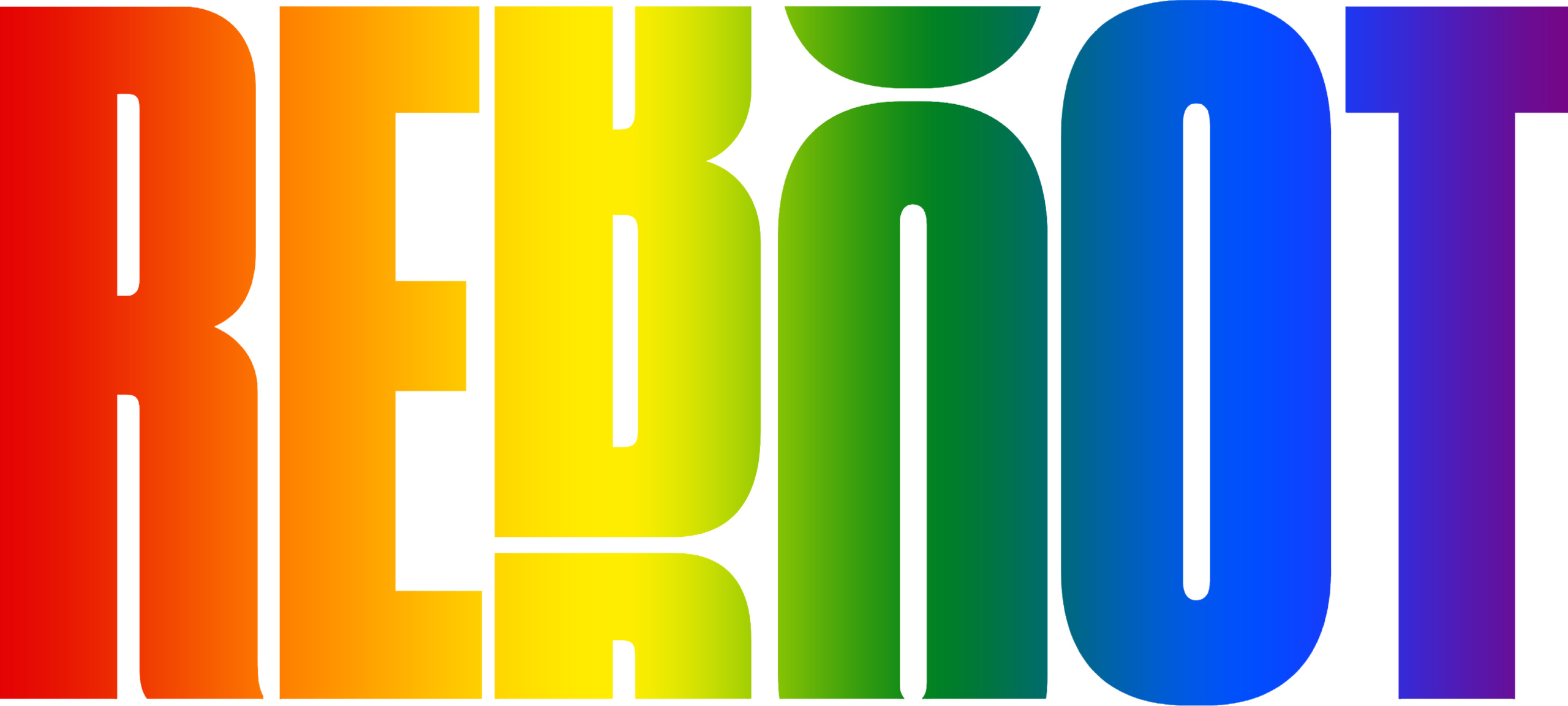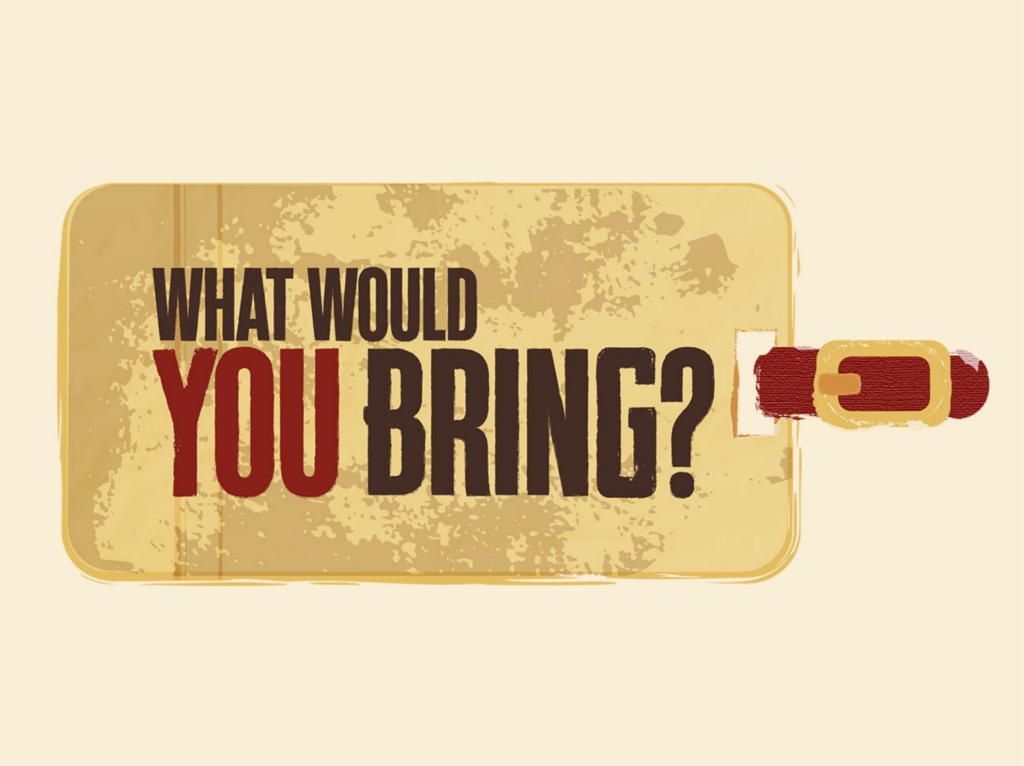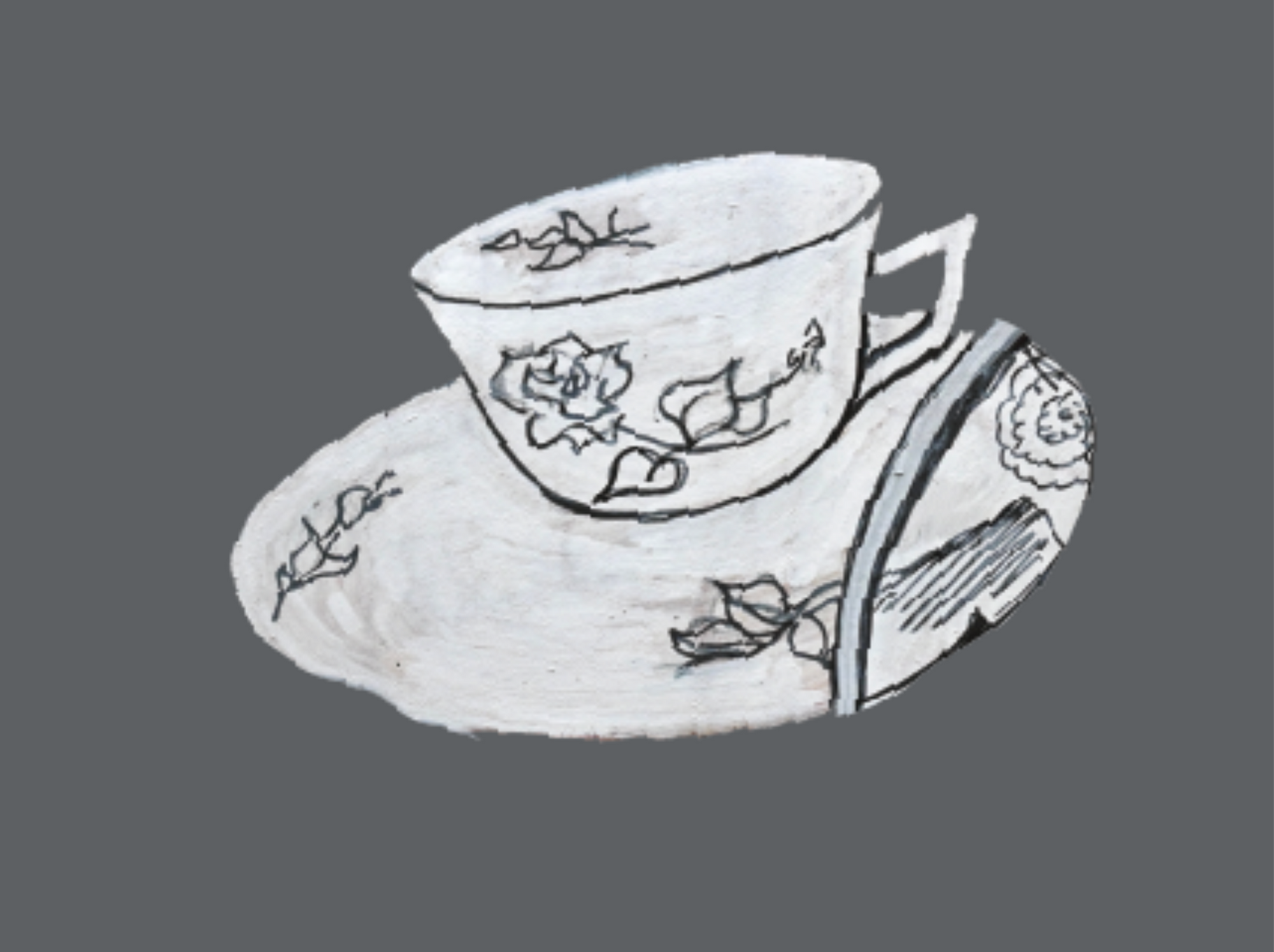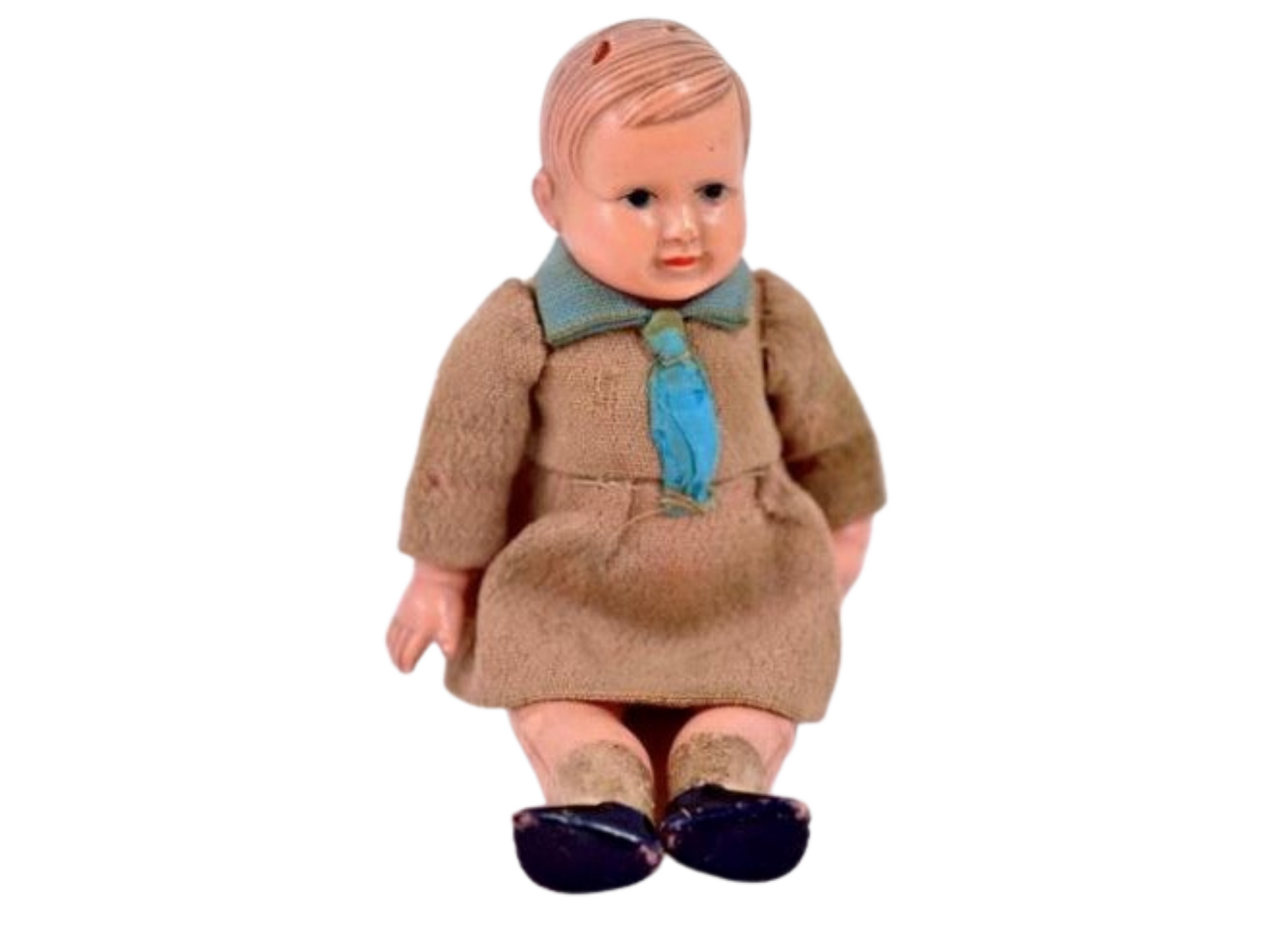What Would You Do?
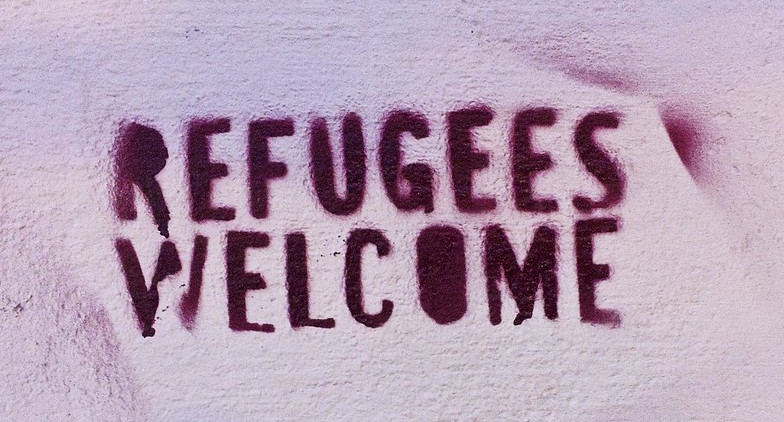
I can’t get the image of a woman handing her baby to soldiers over a barbed wire fence in Kabul out of my head. How desperate do you have to be to do that? How fearful do you have to be to cling to a moving airplane whilst being shot at? This is what is happening in plain sight right now. As our living rooms are filled with these images, we are bearing witness to just how quickly a hate-filled force can reinvade a country and reimprison its own peoples — women and children included.
It’s overwhelming.
I feel a sickening sense of deja vu each time I turn on the television.
I wonder if this is what it felt like for my grandfather in 1938 when he was forced to flee Vienna. He got out in time to escape the knock on the door that would inevitably lead to him being rounded up and taken to a camp. He couldn’t take a plane or a train, and in the chaos of conflict was forced to cross borders without visas. Eventually he made his way to the UK.
I’ve just finished researching the stories of refugees for a project that I recently launched with the US-based non profit Reboot called What Would You Bring? The stories of everyone that I spoke with keep filling my head as I see the crowds of Afghans hoping to get visas that will allow them to leave. I’m reminded of John Hajdu, who escaped from communist Hungary in 1956 with just his teddy bear; of Violet Sassooni who got on a plane with just her children and one small case to flee Iran; of Hedi Argent who left Austria on a train with her small doll after the Anschluss in 1938. How is it possible the world is still a place where people find themselves in situations where they have to flee their home and all that they’ve ever known. My heart is heavy. Nothing is clear. It’s all a blur.
Every time I see the face of someone trying to leave, I think about how it could be me. I think about how it was my grandfather. I wonder what I would do if I were to find myself in that situation — would I have the strength to leave everything behind, to throw my baby over a fence, to just go? Should I have some cash under my mattress like my grandmother always did, just in case it happens here? But that could never happen — could it?
I feel that I have got to do something, that I can’t just watch this unfold on my television screen. Can any of us? Without the help of others, my own grandfather wouldn’t have made it safely to the UK and I wouldn’t be here today. It’s time to pay it forward. It’s always time to do that.
A number of friends who know how I feel about amplifying the stories of refugees have asked —
What can we do? How can we help?
Although I’m not an expert, I’ve gathered some information on resources that I hope others might find useful. Most importantly, we must not be silent. So much in the world feels overwhelming right now but we have a moral responsibility to amplify the voices of those in Afghanistan — particularly women and children. We must keep writing to our MPs and representatives on both sides of the Atlantic and make them accountable. We must sign petitions and let people know we care. Those who are able can donate to organisations who are helping those on the ground and who will help Afghani refugees resettle. If you can’t donate funds, a number of organisations need your time, expertise and physical support as new refugees arrive.
The scale of the problem may seem hopeless, but we don’t have the luxury of standing back. Our small actions can make a difference. They must. Big journeys begin with small steps.
This blog post first appeared on Medium
Juliet Simmons is a Creative Producer based in London. She runs her own consultancy, Piece of Cake
Aid to Afghanistan People Resources*
Organizations Serving Women and Girls
AWAKEN, Afghan Women’s And Kids’ Education & Necessities
“Our mission is to improve access to education, provide healthcare services, create vocational opportunities, and clean water & sanitation to enable Afghan women and families to become literate, healthy, and self-sufficient.”
Women for Women International
“Our global community invests in women survivors of war and conflict, providing them with social and economic skills to transform their own lives. Women pass their knowledge to those around them, creating a more just world — a world where every woman’s voice, role, and contribution are visible and valued.”
https://www.womenforwomen.org/
https://www.womenforwomen.org/act-now-for-afghan-women
(See attached press release about letter writing campaign.)
Women for Afghan Women
“Over the past two decades, Women for Afghan Women has grown from a small network of volunteers to become the largest women’s organization in Afghanistan. Today, WAW has expanded to provide life-changing services, education, and vocational training for our clients across Afghanistan and in the United States (US) who have endured rights violations.”
https://womenforafghanwomen.org/
Click on “Resources and Other Ways to Help” for list and links to Help Afghan Refugees
International Organizations
Afghanaid
“Afghanaid is a British humanitarian and development organisation. For close to forty years, our dedicated personnel have worked with millions of deprived and excluded families in some of the poorest and most remote communities in Afghanistan. We build basic services, improve livelihoods, strengthen the rights of women and children, help communities protect against natural disasters and adapt to climate change, and respond to humanitarian emergencies.”
CARE
A non-profit organization that works around the globe to save lives, defeat poverty and achieve social justice.
Doctors Without Borders
“An independent, global movement providing medical aid where it’s needed most”
https://www.doctorswithoutborders.org/
HIAS
HIAS works around the world to protect refugees who have been forced to flee their homelands because of who they are, including ethnic, religious and sexual minorities. For more than 130 years, HIAS has been helping refugees rebuild their lives in safety and dignity.
https://www.hias.org/afghanistan
The Immigration Advocates Network
The Immigration Advocates Network (IAN), a program of Pro Bono Net, is dedicated to expanding access to immigration legal resources and information through collaboration and technology. IAN was created in 2007 by leading immigrants’ rights organizations, to increase access to justice for low-income immigrants and strengthen the capacity of organizations serving them
https://www.immigrationadvocates.org/nonprofit/
International Committee of the Red Cross
“The ICRC is an independent, neutral organization ensuring humanitarian protection and assistance for victims of armed conflict and other situations of violence. It takes action in response to emergencies and at the same time promotes respect for international humanitarian law and its implementation in national law.”
International Rescue Committee
“The International Rescue Committee responds to the world’s worst humanitarian crises, helping to restore health, safety, education, economic wellbeing and power to people devastated by conflict and disaster.”
No One Left Behind
“No One Left Behind is the first and premier national non-profit dedicated exclusively to standing with our wartime allies (those applying for or who have received a Special Immigrant Visa).”
https://nooneleft.org/default.aspx?
Miles for Migrants
Miles4Migrants is a 501(c)(3) charity, dedicated to using donated frequent flyer miles to help people impacted by war, persecution, or disaster start a new beginning in a new home. We partner with other nonprofits to identify refugees, asylees, asylum-seekers, and their immediate family members who have legal approval to travel, but cannot afford airfare.
Miry’s List
“a community of welcomers using crowdsourcing and social media to connect people like you, who want to help, with families who are resettling in the United States as refugees.”
Save the Children
“Save the Children is an international non-profit founded by Eglantyne Jebb, over 100 years ago. We are active in over 100 countries and were the world’s first international charity for children. We give children in the U.S. and around the world a healthy start in life, the opportunity to learn and protection from harm. When a crisis occurs, we are among the first to respond to an emergency and the last to leave.”
https://www.savethechildren.org/us/where-we-work/afghanistan
UNHCR — United Nations High Commissioner for Refugees
UNHCR, the UN Refugee Agency, is a global organization dedicated to saving lives, protecting rights and building a better future for refugees, forcibly displaced communities and stateless people.
Local Community Resources
Exodus Refugee Immigration
“Exodus Refugee Immigration is dedicated to the protection of human rights by serving the resettlement needs of refugees and other displaced people fleeing persecution, injustice, and war by welcoming them to Indiana.”
https://www.exodusrefugee.org/
Additional Resources
A comprehensive list of resources, petitions, educational materials and other information:
Help Afghanistan (afghanistanmatters.carrd.co)
If you’re in the UK and looking for examples of letters and petitions then take a look here:
How you can help refugees in Afghanistan — IMIX
Or you can write to your MP re-stating that safe passage is needed urgently to save lives in Afghanistan — the link is here: https://action.helprefugees.org/page/88374/action/1
If you’re in the US and looking for examples of actions then HIAS has a list here:
Crisis in Afghanistan: How You Can Help | HIAS
The children’s author Onjali Rauf has also written about how important it is to talk to children about what is going on
Talking to children about Afghanistan: Words of humanity as the refugee crisis worsens | BookTrust
